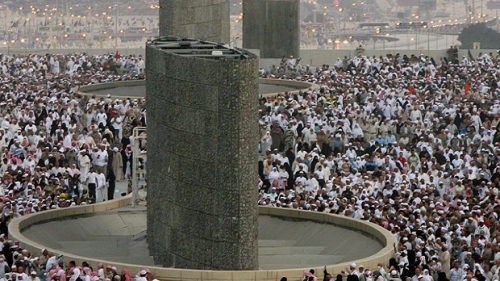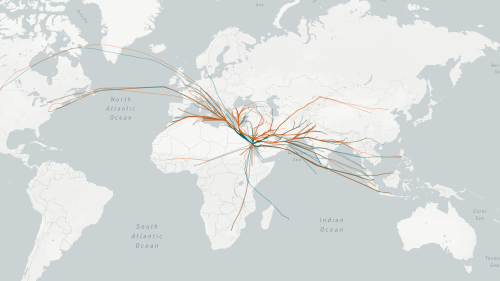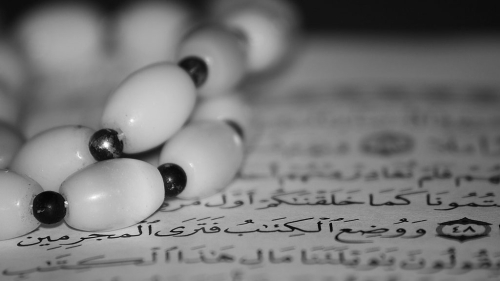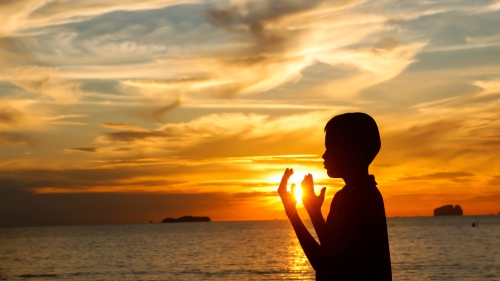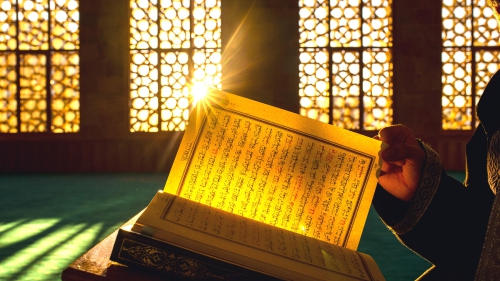The Genesis of Knowing 'Him'

It has been a few months since we started accommodating quite a few habits as new normal in our routines. Can we consider this gravest situation as an intensive course designed by the Almighty for disciplining our souls? Are there any silver linings in the dark clouds as tribulations are believed to be one of the reasons of human existence on earth? The Quran sheds light on this aspect; “We shall certainly put you to the test in order to appraise your state and to see who among you are struggling strenuously and enduring patiently” (al-Quran, 47: 31).
Let’s reflect on what God wants us to acquire from this dreadful global crisis in many decades. Though novel pandemic poses severe disorder to the world, it can also be reasonably perceived that pre-pandemic world order was also in grave disorder and affected with infectious ethical viruses if we look from the perspective that human beings treated each other with unpardonable injustice, they endangered lives of several species and posed severe threats to ecosystem. If so, did we move our world from that of God who is compassionate (Rahīm) and kind (Laṭīf) to that of the Avenger (Muntaqim) and Dominator (Qahhār)?
Two wings of a believer are made of hope (rajā’) and fear (khawf) and the harmony between them leads to a possibly beautiful balance in life. Somehow it could be enlightened as “hope for the best and prepare for the worst.” 2020 batch of humankind literally are experiencing the inevitability of this equilibrium. In the spiraling fear of a deadly pandemic, we hoped for safe survival on the grounds of Allah’s will and our precaution. Once again, we are assured that the only predictable thing about this world is that it is entirely unpredictable. Prophet’s advice is “Be in this world as though a stranger or traveler” (Saḥīḥ al-Bukhārī 6416).
Allahu Akbar (Allah is the greatest) is a frequent phrase used by Muslims in various contexts. Even in the face of calamity, Muslims are asked to say, “We belong to Allah and to Him we shall return” (al-Quran, 2: 156). It simultaneously accentuates the inimitable sovereignty of Allah and the inherent vulnerability of human beings. The Quran says, “Allah wishes to lighten your burdens because humans have been created weak by nature” (al-Quran, 4: 28). Here, a virus that is too tiny to see caused the whole world to shut down and wreaked havoc on many aspects of life across the globe, the fact that evidently beams light on the limited human capacity and necessity of Super Power to rely on. Undoubtedly, the power of the so-called ‘super-powers’ of the modern world is loudly questioned this time than ever before.
From a general perspective, the whole world participated in fasting in 2020 as they were purposefully refraining from several harmful things and were extra-cautious in their choices and preferences. Absent-minded people’s risk was not trivial. Lockdown seemed like a gift, as doors of several distractions and worldly pleasures were closed and a believer enjoyed peaceful detachment, clear-heartedness, and days of solitary retreat. Our houses were brought to life by prayer, recitation, and online classes. Self-isolation helps us avoid infecting others with our poor character, and then it does the same for us from others.
Our prayers are seed and their fruits are to be sprouted in our lives. For example, harvest of fasting is God’s consciousness (taqwah) which is a profound closeness to God and awareness about His uninterrupted surveillance. “O believers! Fasting is prescribed for you, as it was for those before you, so perhaps you will become God’s conscious” (al-Quran, 2: 183). We can’t get the exact result of our fasting in this world; nonetheless, signs of result can be estimated by the degree of taqwah in post-Ramadan days. Thus, we can gauge if we have benefited from fasting more than just thirst and hunger.
Luqman educated his son on some outcomes of prayer which should be reflected if prayer is performed properly. “O my dear son! Establish prayer, encourage what is good and forbid what is evil, and endure patiently whatever befalls you. Surely this is a resolve to aspire to” (al-Quran, 31: 17). This verse revolves around three dimensions of a believer’s life which are prayer, care for others, and patience. If prayer buds its fruit in the form of care for others via advice, it is expected to hit by obstacles that must be fought against by patience.
Amid fast and unrest life, we got a pause to take a breath and to make sure everything is alright, and we are on the right track. In the road of life, it may propel many to relearn the faith and to double-check signboards to avoid speeding through the wrong route. We are in a voyage, seeking Him, the Supreme Answerer (al-Mujīb), navigating our faith and action.
Yes, our ship is worship to sail on. Definitely work is worship if it is in seeking Him. Allah says, “Call upon Me, I will respond to you” (al-Quran, 40: 60). Any mindful effort for seeking ‘Him’ is the genesis of knowing ‘Him,’ which is guaranteed of positive result because the reflection is from ‘Him’ who never breaks any promises. Allah says, “If you come to me walking, I will come to you running” (Ṣaḥīḥ Muslim 2687).
Sayyed Mohamed Muhsin is a researcher of Islamic Biomedical Ethics. He obtained his PhD in Islamic Jurisprudence from International Islamic University, Malaysia.
Topics: Believers, Coronavirus, Fear, Pandemic, Taqwa (God Consciousness) Values: Hope
Views: 1792
Related Suggestions






